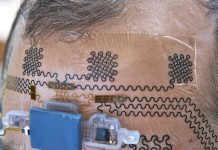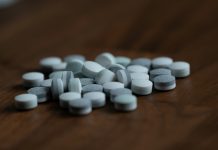
Over the last 20 years, there has been a growing renaissance of research with classic psychedelics—the pharmacological class of compounds that include psilocybin, an ingredient found in so-called magic mushrooms.
According to the National Institute on Drug Abuse, psilocybin can produce perceptual changes, altering a person’s awareness of their surroundings and of their thoughts and feelings.
Treatment with psilocybin has shown promise in research settings for treating a range of mental health disorders and addictions.
In a study from Johns Hopkins Medicine, scientists found that psychedelic treatment with psilocybin or magic mushrooms relieved major depressive disorder symptoms.
Given supportive psychotherapy, the effect may last at least a year for some patients.
The findings add to evidence that, under carefully controlled conditions, this is a promising therapeutic approach that can lead to significant and durable improvements in depression.
In the study, the researchers recruited 27 participants with a long-term history of depression, most of whom had been experiencing depressive symptoms for approximately two years before recruitment.
The average age of participants was 40, 19 were women, and 25 identified as white, one as African American and one as Asian.
Eighty-eight percent of the participants had previously been treated with standard antidepressant medications, and 58% reported using antidepressants in their current depressive episodes.
After screening, participants were randomized into one of two groups in which they received the intervention either immediately, or after an eight-week waiting period.
At the time of treatment, all participants were provided with six to eight hours of preparatory meetings with two treatment facilitators.
Following preparation, participants received two doses of psilocybin, given approximately two weeks apart.
Participants returned for follow-up one day and one week after each session, and then at one, three, six, and 12 months following the second session; 24 participants completed both psilocybin sessions and all follow-up assessment visits.
The researchers found that psilocybin treatment in both groups produced large decreases in depression and that depression severity remained low one, three, six, and 12 months after treatment.
Participants had stable rates of response to the treatment and remission of symptoms throughout the follow-up period, with 75% response and 58% remission at 12 months.
The team says psilocybin not only produces significant and immediate effects, it also has a long duration, which suggests that it may be a uniquely useful new treatment for depression.
Compared to standard antidepressants, which must be taken for long stretches of time, psilocybin has the potential to enduringly relieve the symptoms of depression with one or two treatments.
If you care about mental health, please read studies about the key to depression recovery, and Omega-3 fatty acids could protect memory in healthy older people.
For more information about health, please see recent studies about medications for depression, and results showing these antioxidants could help reduce dementia risk.
The study was conducted by Natalie Gukasyan et al and published in the Journal of Psychopharmacology.
Copyright © 2022 Knowridge Science Report. All rights reserved.



